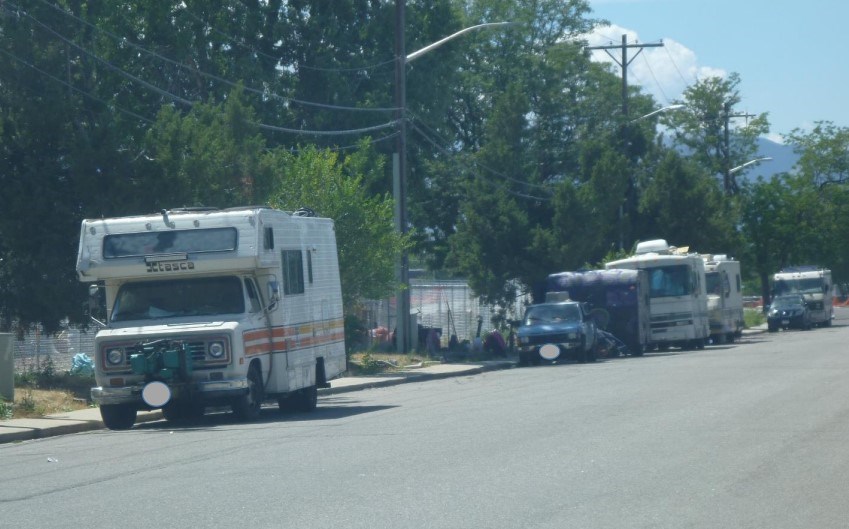Longmont’s new ordinance aimed at getting recreation vehicles and other “sleeper vehicles” off public streets and rights-of-way seems to be working, according to a new report the city council will review tonight.
There are fewer RVs in the most well-known areas of the city where the vehicles were most commonly parked, according to the report. Efforts to get RV dwellers into more permanent housing are ongoing, and both the city and Boulder County combined are spending over $450,000 in the endeavor, the report states.
Police had not towed any RV/sleeper vehicles as of Jan. 6. Police had contacted six RV dwellers and four are well-known to police and have repeatedly declined services offered by the city. One dweller is struggling with mental health issues and police are working with mental health workers to assist the owner, the report states.
A sixth person contacted by police was out of state and their vehicle was broken down. “… Police are giving them time to repair the vehicle and continue their journey,” the report states.
All six RV owners could be towed if they do not ultimately comply with the ordinance. Police, however, say there has been a significant reduction of RV/sleeper vehicles in well-known “hot spots” since the ordinance was enacted, according to the report.
“While a few remain, many people living in RV/sleeper vehicles understand the ordinance and are seeking alternatives elsewhere,” the report states.
The report updates council members on efforts to help RV dwellers find housing since the new, tougher ordinance was passed in November. The ordinance took effect Jan. 1.
Longmont now bans RVs, camper coaches, camper trailers and motorhomes from parking on city streets, alleys and other public rights of way. The new rule replaces a more lenient law that allowed sleeper vehicles to be parked on city streets as long as the vehicles were moved at least 600 feet every 48 hours.
Police and code enforcement officers said a tougher ordinance was needed because of a jump in the number of junked and abandoned RVs on Longmont’s streets.
Critics of the ordinance said Longmont was punishing RV dwellers who could not afford another form of housing.
City staff members along with Homeless Solutions for Boulder County began a coordinated outreach campaign after the ordinance passed in November, the staff report states. The group created a bilingual flyer to share information about the new ordinance and how to get a permit to allow for a more long-term stay in an RV.
The flyer also informed RV owners how to access a program that could find them a more permanent home, the report states.
Since November, a specialist with the Boulder Shelter for the Homeless has received 57 phone calls and/or voicemails about the ordinance change, which likely came from 22 individuals, the staff report states.
The specialist has finished 14 assessments for entry into housing programs. Of those 14, 10 received referrals to shelters while the rest are continuing with the process of getting housing, the report states.
Eight people also called about the ordinance and declined to go into a housing entry program. Most said they did not feel they were homeless, the report states. “... A repeated refrain was that parking on a public street, especially for those who currently work in the city and thus pay city taxes, should be available to all,” according to the report.
Several other programs and efforts have started this year to reach more people living in RVs, the report states.
“When combined, the city and Boulder County are investing $456,000 in new one-time resources available to people experiencing homelessness and/or living in their RVs/sleeper vehicles and who are engaged with Homeless Solutions for Boulder County,” the report states.



